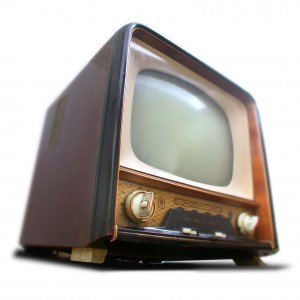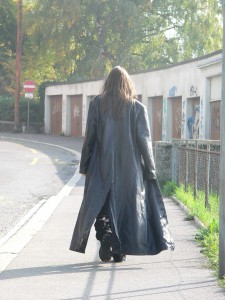An article by Alex Williams in the New York Times discusses the “recent” trend toward Northeastern Americans adopting British slang in everyday conversation. The piece targets the usual suspects: BBC America, Downton Abbey and JK Rowling are the most commonly cited. But while Williams discusses this borrowing as if it were a current fad, I suspect it’s been going on for some time now.
I can’t comment on every possible reasons for this phenomenon (Lynne Murphy has a more nuanced take here), but I can comment on myself; I am an incorrigible British English thief. For me, however, the habit is no mere pretense, but rather the product of a unique upbringing. I would cite three big factors:
1.) Many people my age were brought up on British literature. The 1960s-1990s were British lit’s golden era among American children. Williams’ article mentions Harry Potter, but really, JK Rowling was the icing on the cake. Her books arrived after decades in which Roald Dahl* dominated the children’s novel genre, along with CS Lewis, Mary Norton, Brian Jacques, and Frances Hodgson Burnett. With a steady diet of British English, it had an impact on my writing style and, in due course, how I speak.
2.) PBS. Long before BBC America, we had PBS. If, like me, you had no cable TV and lived in a rural area, PBS was the best option you had between 1980 and 1992. Public Broadcasting had a packed schedule British programming schedule: Masterpiece Theatre, Upstairs Downstairs, Fawlty Towers, As Time Goes By, and various other Beeb staples. I had far more exposure to British English than my parents did thanks to PBS’ thrifty borrowing from the state-funded broadcaster across the pond.
3.) Britishisms had a covert prestige among the young and “weird.” If you were like me, growing up in American exurbia, you longed to separate yourself from the locals. Among many young, Cure-loving, “alternative” teenagers, Britishisms served as a kind of badge of allegiance. I don’t recall ever referring to an elevator as a “lift,” but I definitely let loose an unironic “bloody” here and there. I don’t find this surprising. After all, the fascinatingly ongoing phenomenon of the American “teenage goth” certainly finds its roots in UK post-punk.
I guess what I’m suggesting here is that the rise in Britishisms among Generations X and Y may have been due to groundwork laid decades past. At least they were for me. Although America’s current craze for Dr. Who and Sherlock no doubt helped the process along.





Oh I have a good example of exactly what you’re talking about: the use of “er” as a hedge phrase. British authors write “er” (pronounced “uh”) when their characters don’t know what to say, and some American readers start to say “er” (pronounced rhotically) when they want to sound cool. It’s a good sign of the “nerd accent.”
Mind, some of us pronounce “er” with a rhotic due to having only read it in a rhotic accent and being unaware of the schwa only intention, not to sound cool/nerdy. Though this ‘book accent’ is a trait of the geeky.
To what mm says I’ll add that I suspect a lot of people, like me (in the past), use it without realizing it’s a British thing.
There’s a nerd accent! Is there a web clip of that?
Try Vi Hart on Youtube. Anything by Vi Hart.
Vi Hart, mathemusician
Chell’s Mind
Kurt Harland Larson, Information Society (advance to 11:25 if you want to just get to the speaking)
Clifford Stoll
I find that the “nerd accent” is more about cadence and transitions, not about specific patterns of sounds.
Personally, “Er” and “Uh” have different meanings.
“Uh” means “I’m not sure what to say next, give me a moment.”
“Er” means “I just misspoke; let me correct that.”
At least, that’s how I use them.
rachid November 21, 2011 haythat’s is great,u strat first to chang your bevahior by a simple activty like a clean,practice sport and eat haighly,but u don’t focus to chang your mind by changing your ideas about life like think postively and be a proactive man,u see what i’m mean to tell u:it’s easy to chang your bevahior but it very difficult to chang your idea because depression in true is just wasan idea on mind like that i’m failed my project i feel no good in my life,now i’m depressing,u see that,just idea cintrol our life if we cintrol ideas in our mind we control us
Also, Monty Python, and The Hitchhiker’s Guide to the Galaxy. I mean, if we’re talking about nerd roots of British-isms.
Monty Python was definitely a big factor for me, particularly the movies. Also, in a related vein, all those weird films Terry Gilliam made in the 70s and 80s. Gilliam was raised in Minnesota and LA, but he was obviously very Eastward-looking in his aesthetic and casting choices.
Especially HGTTG, which handily combines 1) Brit Lit, 2) PBS (I used to watch the BBC Hitchhiker’s TV series on Thursday’s after Monty Python when my folks would let me stay up late as a kid, and 3) Nerd.
I wonder if UK ghetto culture will have an effect on American speech. Due to the US mainstreaming of dubstep and jungle, the popularity of British hooligan films, well as the growing number of British R&B singers like Taio Cruz, Jay Sean and Emile Sande, Britain’s street’s have been getting a fair amount of attention lately. Its getting pretty vogue to show off your awareness of chav culture and British urban minorities.
OTOH, while I’ll admit that Cockney has a cold harshness to it that AAE is starting to lack (due to decades of mainstreaming,) nobody I know would give in to the temptation to say “innit” or “/fækin/” in public. Not yet anyway.
We have quite enough chavs already, thank you.
“Innit” seems to have gone out of fashion. It was cool in the 90s and noughties. The BBC comedy “Goodness Gracious Me” had two characters who said the word a lot (as well as saying “man” at the end of every sentence).
I don’t hear the word much any more.
And once again, here is where I have to recommend the TV show Misfits. Not that it would seriously affect my language, though.
What I find most perverse is that, with the exception of New England, Britishisms in America seem to be expanding from west to east. At least that’s been my experience. Even spellings have begun to change. Last semester, nearly everyone in my linguistics class admitted to spelling colour with a u, even in formal situations.
I have to say I’ve never seen an American use such a spelling.
I can’t say I have either, although I do occasionally write ‘-ise’ where most Americans would write ‘-ize’ (I correct myself). I’m not sure that’s due to Anglophilia, though: ‘z’ is such an infrequent letter that to use it in this one common context always feels a bit strange.
I’ve seen Andrew Sullivan (British expat writer living in the U.S.) try to compensate in the opposite direction on his blog The Dish, overusing “-ize” in the apparent belief that no American English word ends in “-ise”: “advertize”, for example.
Ben:
zhed was the original letter used in that example; BrE orthography changed to “s” later, while AmE retained the “z,” never making the change in most cases.
Pingback: This Week’s Language Blog Roundup: Binders, Britishisms, and more | Wordnik
I love that you mentioned Brian Jacques, he was a friend of my mother’s. I never met him, sadly (he died not long ago), but I sent him a letter once as a child, and he sent me a stack of his books and calendars and so on and a free subscription to his fan club, all the way to New Zealand. Nice guy.
PS I just came across your blog from a link on Twitter (Fawlty Towers is trending because they’re showing it on BBC right now), so hi!
Thanks Gwan! Glad you enjoy it!
Many times UK spelling is considered more posh, in the US: cancelled, theatre, monologue, dialogue…
Some Britishisms are plain incorrect, for example, the faux-Latin spelling FOETUS.
”The word fetus (plural fetuses) is from the Latin fētus (“offspring”, “bringing forth”, “hatching of young”).[3]
Fœtus or foetus is the British, Irish and Commonwealth spelling, which has been in use since at least 1594.[4] It arose as a hypercorrection based on an incorrect etymology (i.e. due to insufficient knowledge of Latin) that may have originated with an error by Saint Isidore of Seville, in AD 620.[5][6] This spelling is the most common in most Commonwealth nations (except in the medical literature, where its use is discouraged). The etymologically correct original spelling, fetus, is used in Canada and the United States. In addition, fetus is now the standard English spelling throughout the world in medical journals.[7] The spelling “faetus” was used historically.[8]
The spelling in the Oxford Encyclopedic English Dictionary, Third Edition (1996), page 537, is ‘foetus’ with ‘foetuses’ as the plural; ‘fetus’ (page 514) is given as the ‘US variant of foetus.’ However, later editions of the OED clarify the etymology behind the Commonwealth spelling.” (WIKI)
1) Don’t forget Tolkien. Also, F. H. Burnett spent most of her life in the United States.
As someone of Indian heritage who moved to the States at the age of 5 (11 years ago) I find myself using quite a bit of ‘Britishisms’ when i speak. This might have to do with my parents being Indians who grew up learning British English, my distaste for quite a bit of American slang and humor, or my obsession with anything Who-related and Benedict Cumberbatch. Probably some combination of the three.
Great blog 🙂
Also, I’ve recently found that I’ve been using the British spelling of some words for my entire life without realizing. Absolutely mortifying for someone who can’t even bear misspellings in text messages…